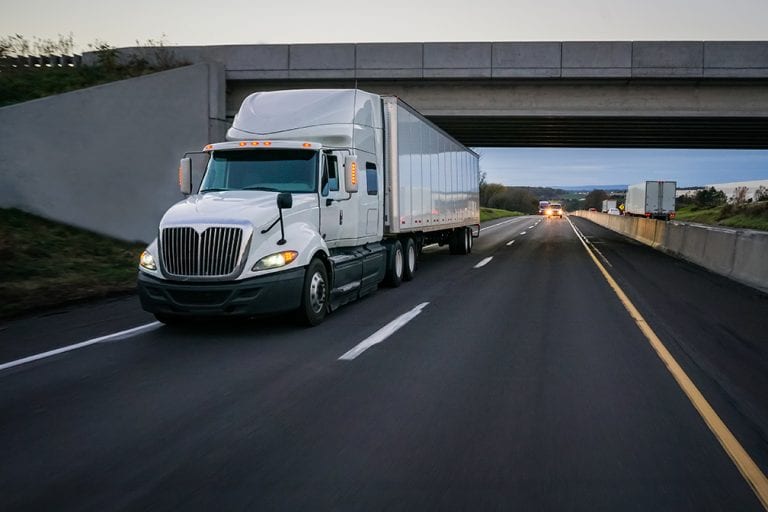HARTFORD, Conn. — The Connecticut legislature this week passed a highway usage fee bill that would levy a vehicle miles traveled (VMT) tax on large commercial trucks. House Bill 6688 (HB 6688) was approved by the House Tuesday, June 8, with a vote of 88-59. The Senate approved the bill with a vote of 22-14 shortly after 12:30 Wednesday, June 9, according to the CT Mirror.
The bill is now headed to the desk of Connecticut Gov. Ned Lamont’s desk, who included the bill in his earlier this year. The bill is sponsored by Democratic Reps. Matthew Ritter, Martin M. Looney, Jason Rojas and Bob Duff.
If signed into law by Lamont, the bill would result in a VMT ranging from 2.5 cents per mile for commercial trucks with a gross weight of 26,000 to 28,000 pounds up to 17.5 cents per mile for those weighing 80,000 pounds or more. The fees, which would apply to all roads within the state, would be enacted Jan. 1, 2023, with motor carriers required to calculate and file monthly returns for miles traveled on roads within Connecticut. The funds generated, expected to average $90 million annually, would be deposited into a special transportation fund.
In addition, carriers would have to apply for and be granted a permit before their trucks would be allowed to travel within the state.
Joseph Sculley, president of the Motor Transport Association of Connecticut, described the proposed tax as “unworkable,” adding that out-of-state trucks are likely to find new routes, avoiding travel through Connecticut and leaving in-state carriers to bear the brunt of the tax burden.
The Trucker News Staff produces engaging content for not only TheTrucker.com, but also The Trucker Newspaper, which has been serving the trucking industry for more than 30 years. With a focus on drivers, the Trucker News Staff aims to provide relevant, objective content pertaining to the trucking segment of the transportation industry. The Trucker News Staff is based in Little Rock, Arkansas.









In my opinion, here’s the problem, the state taxes the carriers and that creates a issue with the shippers. The carriers fight with shippers for the additional cost. Because the cost has to be past on and eventually it gets right back to the consumer.
Bye bye Connecticut!! Nice knowing yah…
U got what u wanted u bunch dump —- Dem. when will u learn
This will NOT BE TOLERATED. This is what happens when LIBERALS run a state like this.
Liberalism is a MENTAL ILLNESS DISORDER.
Just Stop, Stop, Stop shipping and delivering. There are 47 other states that have not enacted this lunacy. When shelves are empty, food not available the vote will decide who stays and who goes. Ya know the answer, the politicians that voted to approve this measure will be voted out.
Remember their names so they may never return there or anywhere else. Just BAD thinking.
If that happens we not going to deliver load until your shelves will be empty.And think before you do that. Cuz that’s not a good idea your state will suffer from hunger.
Here comes the “Highway Use Surcharge” carriers will bill the shippers and receivers in CT to move their freight.
Nice going Ct Legislature, let’s put the screws to the industry one more time!!!!!!!!!
This is complete BS!!!! States are already paid extra taxes for heavy vehicles per mile. It is called IFTA. International Fuel Tax Agreement (IFTA) is a federal program that ALL semi truck companies already pay. This is double tax, and it is ILLEGAL no matter who voted for it.
PS: I will be refusing all CT loads and NOT be taking any loads through CT at all. There are plenty of roads around CT. Screw CT and that double tax crap.